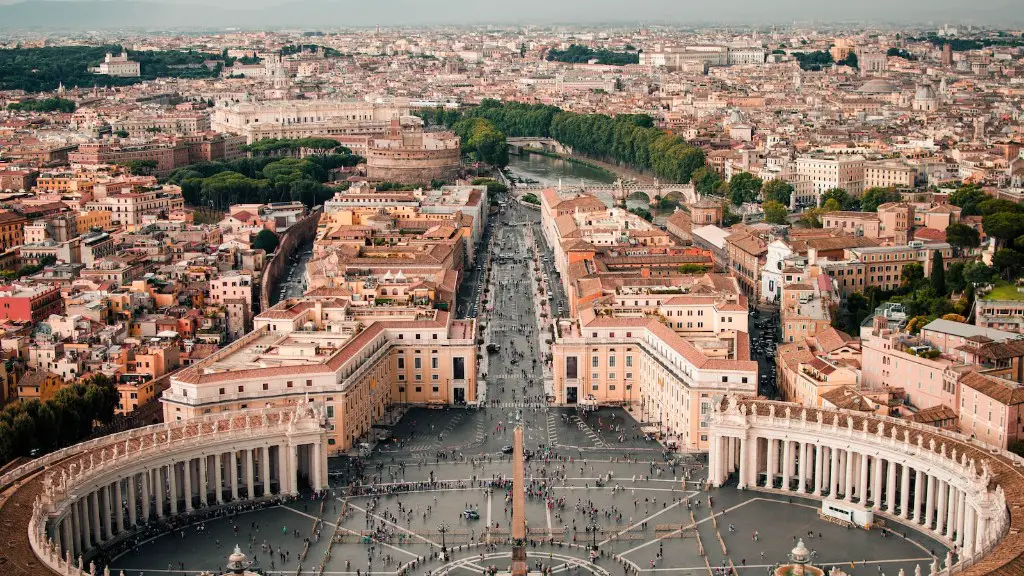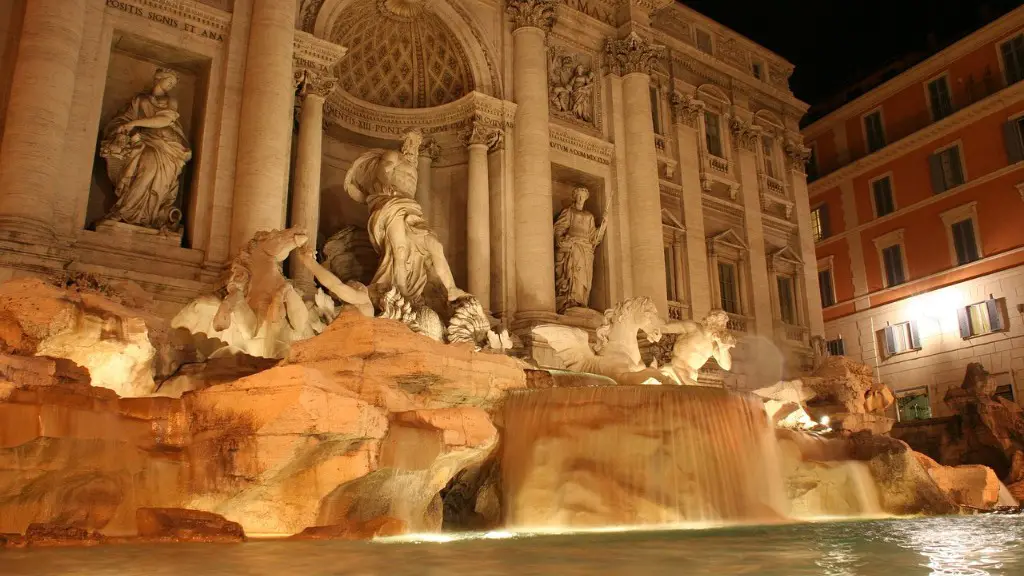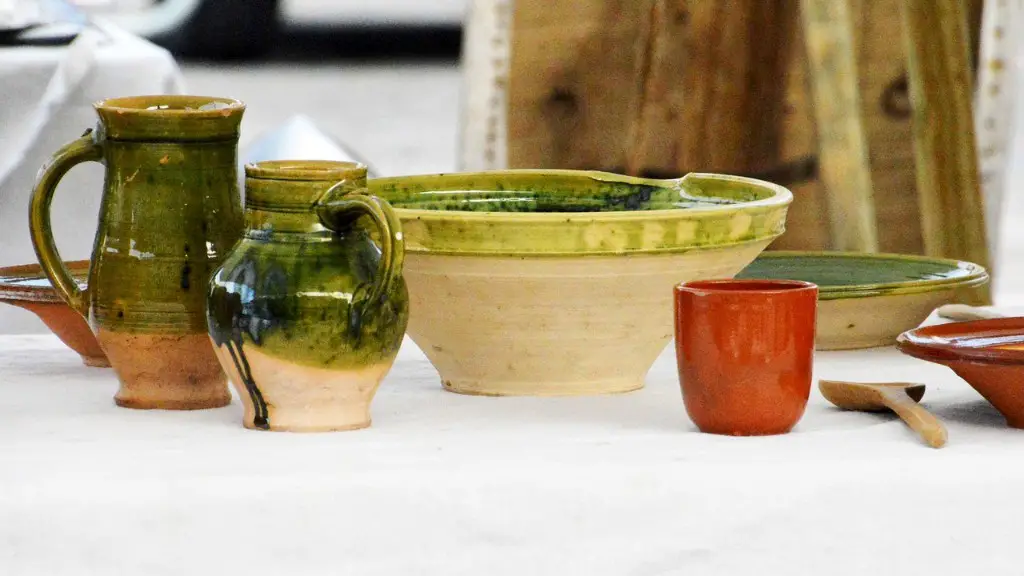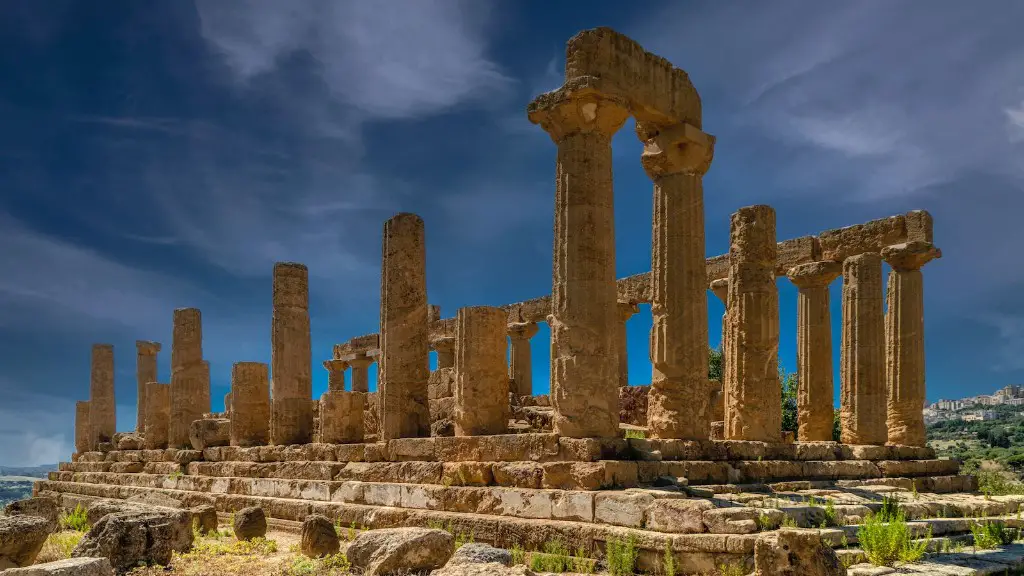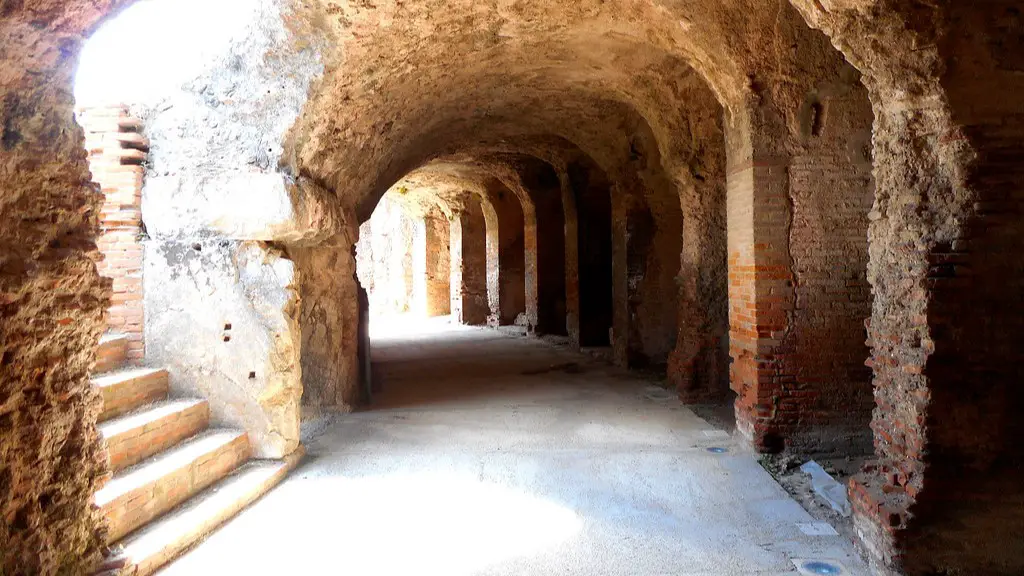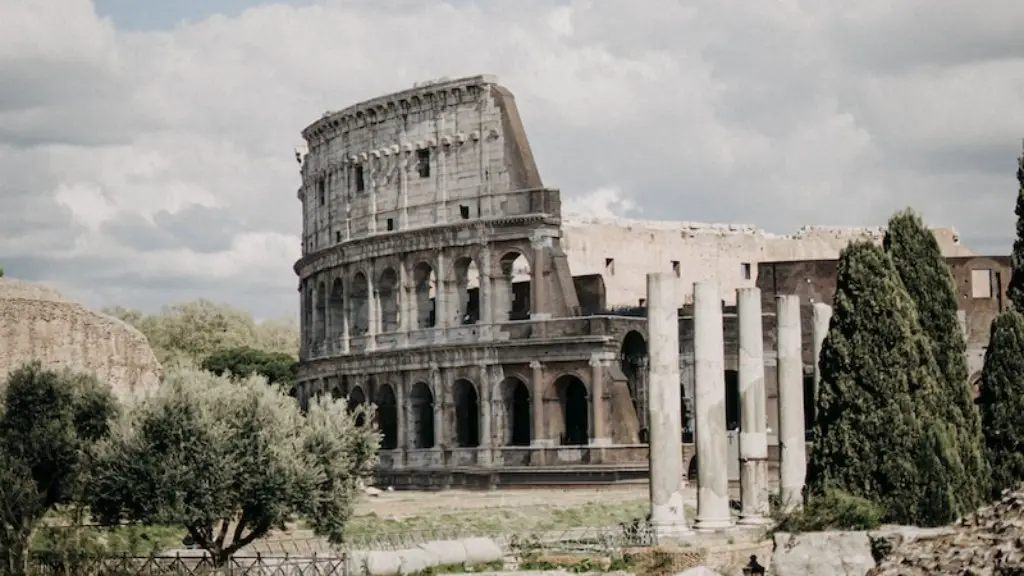Descendants Of Ancient Romans
It had been over a millennium since ancient Rome fell to Germanic invasions in the 5th century AD. Since then, the legacy of the Roman Republic and Empire had been carried on by the descendants of its citizens throughout Europe. But where, exactly, are the descendants of the original natives of Rome and the Empire, and how can we recognize them?
In order to answer this question, it’s important to understand the history of Rome and its citizens. Ancient Rome was founded in 753 BC by the legendary Romulus and Remus, who got their name from their grandfather, chariot-riding warrior warrior king Aeneas of Troy, one of the foremost figures in classical mythology. Rome, upon its founding, was ruled by an oligarchy of patricians—members of an elite aristocratic class that controlled Rome’s political and economic life. Over time, the Roman Republic was established, and with it, the law of citizenship—meaning that anyone born in Rome, or of a citizen of Rome, was automatically a citizen of Rome. Citizenship was dictated by the jus sanguinis, the right of blood—not by place of birth.
This meant that anyone could become a citizen of Rome—as long as they had a direct ancestor who was a Roman citizen. This was a key factor in the growth of the Roman Empire—allowing for the many cultures and ethnicities of conquered territories to assimilate into the Roman identity over time. In an effort to keep their Roman heritage alive, the descendants of these ancient citizens of the Republic and Empire have kept their Roman ancestry alive through place names, cultural practices, and language.
This is especially evident in many of the descendants living in countries that were at one point part of the Roman Empire. In Italy, for example, many of the inhabitants today are the direct descendants of the original citizens of the Empire—from its sailors, traders, and soldiers to the senators and scholars of the Republic. In Romania, many of the people can trace their ancestry back to the Roman legionnaires who conquered the region in the 2nd century BC. Even in North Africa, descendants of Roman citizens who left Italy to build new towns and cities known as the “barbarian colonies” can be identified by their surnames, such as the Italian name ‘Puccio’ in Tunisia or the Spanish name ‘Castillo’ in Morocco.
All in all, it can be said that the descendants of the ancient Romans are found all over the world—from Italy to Romania, from North Africa to Austria. They can be identified by their common surnames, their distinctive languages, and their shared cultural practices and stories. They remain a testament to the longevity and endurance of the Roman Republic and Empire, even thousands of years after its fall.
Latin Language
Perhaps one of the most enduring links to the Roman Republic and Empire is the Latin language. Although Latin was gradually replaced as the official language of government and military by vernacular languages like Italian, French, and Spanish, it still shaped the cultures and languages of Italy and most of Europe. This is evident in the many Latin-derived words we still use today in English and other languages. The Latin phrase “caveat emptor” means “let the buyer beware,” and is still an important legal principle today. Other Latin words—like “bonus” and “campus”—are still used in everyday English.
Latin also remains a strong influence in Roman Catholic churches around the world. Latin is still used in formal ceremonies and church services, particularly for scripture readings, hymns, and blessings. In some churches in Italy, Latin is still the language of choice for teaching and preaching. Latin also remains an important tool for scholarly research, as it gives linguists and historians a window into the language, laws, and customs of Ancient Rome—thus preserving the cultural legacy for future generations.
It is remarkable to think that Latin—a language used 2,000 years ago—still influences the way we communicate and think today. Indeed, if there is one thing that binds all the descendants of the Roman Republic and Empire together, it is the language of their ancestors.
Cultural Influences
The legacy of Ancient Rome can also be seen through the many cultural practices, customs, and beliefs that have been passed down through generations of descendants. In Italy, for example, many of the traditions and rituals associated with Catholicism—such as the Easter procession—have their roots in ancient Roman religious practice. The traditional Roman toga is still used in some areas of the country, and the Roman salute is still used as a symbol of respect.
Even in places that were not part of the Roman Empire, the descendants of ancient Romans have had a lasting influence on culture and society. In parts of northern Europe, for example, many of the early settlements were founded by Roman legionnaires, colonists, and traders. This immigration left a strong cultural imprint on the local population, and Roman artifacts—including coins, sculptures, and pottery—are common in many of these areas.
The cultural influences of ancient Rome are also evident in the food, architecture, and art styles of many countries today. In Italy, for example, many of the recipes used in traditional Italian cooking have their roots in ancient Roman cuisine. The famous Roman arch is still an iconic architectural feature in many cities around the world. Classical art and sculptures, inspired by the grandeur of the Roman Empire, remain popular among art enthusiasts and connoisseurs.
All in all, it can be said that the cultural legacy of the ancient Romans is still alive and well. From language to religion, from food to art, the descendants of the original citizens of the Roman Republic and Empire continue to carry the mantle of their ancestors—ensuring that their memory and legacy will live on for generations to come.
Politics and Law
The political and legal systems of modern-day nations also owe a great debt to the ancient Romans. The Roman Republic was one of the earliest forms of democracy, and many of its legal principles have been adopted in modern legal systems. The Roman principle of “innocent until proven guilty” is still recognized in many countries today, as is the Roman concept of citizenship. Similarly, Roman legal principles such as contract law, tort law, and inheritance laws are still in use in many jurisdictions around the world.
The descendants of the ancient Romans, too, have made contributions to the political and legal systems of their countries. In Italy, for example, many of the major political figures of the past and present—including the first president of the Republic, Sandro Pertini, and the current Prime Minister, Matteo Renzi—can trace their ancestry back to the original citizens of the Republic. Even in countries that were not part of the Roman Empire, the descendants of the ancient Romans have had a great impact on their legal and political systems.
There is no denying the legacy of the ancient Romans. From language to food, from art to law, their legacy has had an enduring impact on the world. Their descendants are found all over the globe, carrying on the memory and traditions of the Republic and Empire. Whether through place names or cultural practices, the descendants of the Roman Republic and Empire remain a testament to the longevity and endurance of this ancient civilization.
Traditions and Sports
Not only did the ancient Romans play a significant role in the world’s political and legal systems, they also left an indelible mark on the world of traditional sports. For centuries, many of the traditional sports we know of today were popular amongst the citizens of the Republic and Empire. From chariot races and gladiatorial games to wrestling and gymnastics, the ancient Romans were experts in the art of competition.
Today, many of the traditional sports of the ancient Romans remain popular in many countries around the world. Wrestling and gymnastics continue to be Olympic sports, and the chariot race is still a popular event at circuses and carnivals. Even in Italy, the traditional sport of calcio—a type of football played with teams of 27 players—dates back to the 16th century, when it was played by the citizens of Rome.
The descendants of the ancient Romans have also played an important role in the evolution of traditional sports. In Italy, for example, some of the greatest modern-day footballers—such as Paolo Maldini and Alessandro Del Piero—are the direct descendants of the original Roman citizens. In some countries, such as Romania, the traditional sport of lupte—a type of hand-to-hand combat similar to wrestling—still remains popular among the descendants of the Roman legionnaires.
Whether through traditional sports or more modern pursuits, the descendants of the ancient Romans carry on the spirit of their ancestors. For centuries, they have carried on the traditions and sports of the Republic and Empire, ensuring that their legacy will live on for generations to come.
Arts and Literature
The influence of the ancient Romans can also be seen in the arts and literature of the modern age. Many of the great European authors of the past and present—including Dante, Petrarch, and Goethe—were inspired by the classical works of Latin literature, as are many poets and playwrights today. The works of Roman authors such as Cicero, Virgil, and Ovid continue to be revered and studied by scholars around the world.
The descendants of the ancient Romans also continue to have a major influence on the world of art and literature. In Italy, for example, such modern-day writers as Umberto Eco and Italo Calvino both trace their ancestry back to the Roman Republic and Empire. Even in countries that were not part of the Roman Empire, the descendants of the ancient Romans continue to shape the landscape of literature and art.
It is clear that the descendants of the ancient Romans have had a profound influence on the art and literature of the modern age. Whether it is through classical Latin works or modern novels, the influence of the Roman Republic and Empire is still alive and well—ensuring that their legacy will live on for generations to come.
Conclusion
From language to politics, from sports to art, the descendants of the ancient Romans have had an enduring impact on the world. They have kept the traditions and customs of their ancestors alive and passed them down through generations. As such, they remain a testament to the longevity and endurance of the once-great Roman Republic and Empire. Their legacy will continue to live on—in language, in culture, and in law—for generations to come.
